Our past fellows 2022
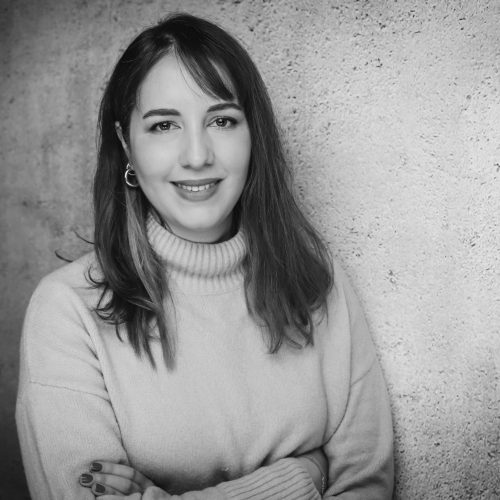
Ayşe Güngör
Ayşe Güngör is an art historian with a background in art theory, anthropology and curatorial practices. Her research examines the confluence of art and anthropology in the practices of contemporary artists from Turkey, broadening the frame via narratives of global art and cultural exchange and eco-art practices. She investigates theoretical debates on artistic representation and institutional frameworks.
At global dis:connect, she investigated the global art discourses embedded in institutionalised contemporary art through the representation of Istanbul in Germany through several exhibitions since 2000. By examining this complex relationship of global interconnectedness, her research seeks to identify gaps and limitations in the globalisation processes of contemporary art from Turkey.
Click HERE for a list of publications.
Click HERE to email Ayse.

Ayşe Güngör
Click HERE to email Ayse.
Click HERE for a list of publications.
Ayşe Güngör is an art historian with a background in art theory, anthropology and curatorial practices. Her research examines the confluence of art and anthropology in the practices of contemporary artists from Turkey, broadening the frame via narratives of global art and cultural exchange and eco-art practices. She investigates theoretical debates on artistic representation and institutional frameworks.
At global dis:connect, she is investigating the global art discourses embedded in institutionalised contemporary art through the representation of Istanbul in Germany through several exhibitions since 2000. By examining this complex relationship of global interconnectedness, her research seeks to identify gaps and limitations in the globalisation processes of contemporary art from Turkey.

Enis Maci
artist fellow
Enis Maci is one of Europe’s most striking polyartists. She is the author of the essay collection Eiscafé Europa and a series of plays. Most recently, the collaboration Ein faszinierender Plan (Spector 2021) and the play WUNDER (Suhrkamp 2021) were published. In 2022, the play Kamilo Beach, co-written with Pascal Richmann, premiered at the Volksbühne am Rosa-Luxemburg-Platz. This will be followed by the world premiere of LORBEER at Schauspiel Stuttgart. Her work has received several awards, most recently the Max Frisch Förderpreis. In 2022 Enis was a fellow of global dis:connect and also a fellow of the Villa Aurora in Los Angeles.
While at global dis:connect, Enis worked on Habitat – an exploration of mythologies of information, their global dissemination and the esoteric, yet tangible ways in which contentious narratives touch upon concrete bodies and subjectivities.
Click HERE for a list of publications.
Click HERE to email Enis.

Enis Maci
artist fellow
Click HERE to email Enis.
Click HERE for a list of publications.
Enis Maci is one of Europe’s most striking polyartists. She is the author of the essay collection Eiscafé Europa and a series of plays. Most recently, the collaboration “Ein faszinierender Plan” (Spector 2021) and the play “WUNDER” (Suhrkamp 2021) were published. In 2022, the play “Kamilo Beach”, co-written with Pascal Richmann, premiered at the Volksbühne am Rosa-Luxemburg-Platz. This will be followed by the world premiere of LORBEER at Schauspiel Stuttgart. Her work has received several awards, most recently the Max Frisch Förderpreis. This year Enis is a fellow of global dis:connect and also a fellow of the Villa Aurora in Los Angeles.
While at global dis:connect, Enis works on Habitat – an exploration of mythologies of information, their global dissemination and the esoteric, yet tangible ways in which contentious narratives touch upon concrete bodies and subjectivities.
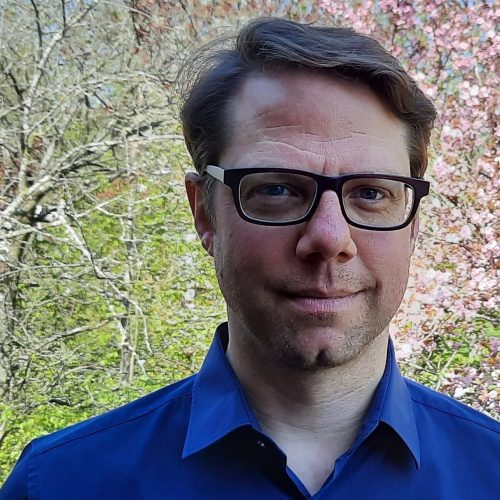
Martin Rempe
Martin Rempe studies modern German, European and African history, particularly the social history of cultural work as well as the history of colonialism, decolonisation and development. Transnational and global perspectives are at the heart of his research. Martin’s career path has led him through stints in Berlin, Strasbourg, Heidelberg, Vanderbilt University in Nashville, Freiburg, Paris and Konstanz.
At global dis:connect, he examined the role and significance of the military in civic musical life during the long 19th century from a global perspective. From the French Revolution to the First World War, military music shaped how music has come to be consumed, produced, appreciated and practised worldwide. Indeed, it has profoundly marked how we continue to valorise culture, and it propagated European music formations in distant geographies. Combining processes of rupture and continuity, displacement and integration, dis:connectivity is a key concept in grasping how military music has helped to (trans)form our world.
Click HERE for a list of publications.
Click HERE to email Martin.

Martin Rempe
Click HERE to email Martin.
Click HERE for a list of publications.
Martin Rempe studies modern German, European and African history, particularly the social history of cultural work as well as the history of colonialism, decolonisation and development. Transnational and global perspectives are at the heart of his research. Martin’s career path has led him through stints in Berlin, Strasbourg, Heidelberg, Vanderbilt University in Nashville, Freiburg, Paris and Konstanz.
At global dis:connect, he is examining the role and significance of the military in civic musical life during the long 19th century from a global perspective. From the French Revolution to the First World War, military music shaped how music has come to be consumed, produced, appreciated and practised worldwide. Indeed, it has profoundly marked how we continue to valorise culture, and it propagated European music formations in distant geographies. Combining processes of rupture and continuity, displacement and integration, dis:connectivity is a key concept in grasping how military music has helped to (trans)form our world.
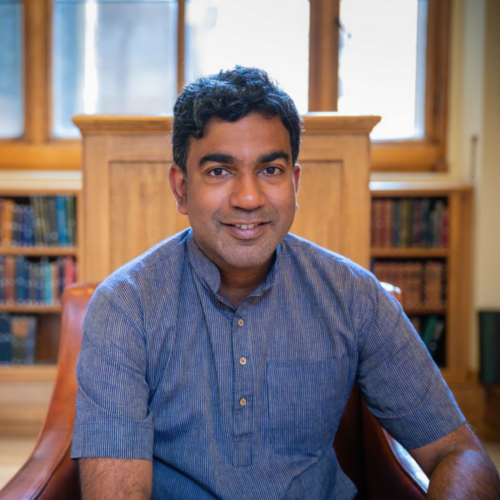
Sujit Sivasundaram
Sujit has taken a circuitous path to his current post as professor of world history and director of the centre of South Asian studies in Cambridge. Bouncing between the Asia-Pacific region and Europe, he has left his mark on imperial history, oceanic history, cultural history, and the history of science. This path has taken him through the LSE, the EHESS in Paris, the Universities of Singapore and Sydney, and the National Maritime Museum in Greenwich.
During his fellowship at global dis:connect, Sujit focused on the long history of Colombo. He is interested in the challenges of building a city such as this, at the centre of the Indian Ocean, in a marshy terrain, and the labour and community formation that met such an environmental challenge. He developed his perspective on connection as an unstable practice, especially when tied to capitalism and empire, because of its potential to segment and divide places and people. He is also interested in the art and visual practice surrounding this city and what it tells us of how globalisation is visualised and propagandised.
Click HERE for a list of publications.
Click HERE to email Sujit.

sujit sivasundaram
Click HERE to email Sujit.
Click HERE for a list of publications.
Sujit has taken a circuitous path to his current post as Professor of World History and Director of the Centre of South Asian Studies in Cambridge. Bouncing between the Asia-Pacific region and Europe, he has left his mark on imperial history, oceanic history, cultural history, and the history of science. This path has taken him through the LSE, the EHESS in Paris, the Universities of Singapore and Sydney, and the National Maritime Museum in Greenwich.
During his fellowship with us in Munich, Sujit will be focusing on the long history of Colombo. He is interested in the challenges of building a city such as this, at the centre of the Indian Ocean, in a marshy terrain, and the labour and community formation that met such an environmental challenge. He will be developing his perspective on connection as an unstable practice, especially when tied to capitalism and empire, because of its potential to segment and divide places and people. He is also interested in the art and visual practice surrounding this city and what it tells us of how globalisation is visualised and propagandised.
past associated fellows
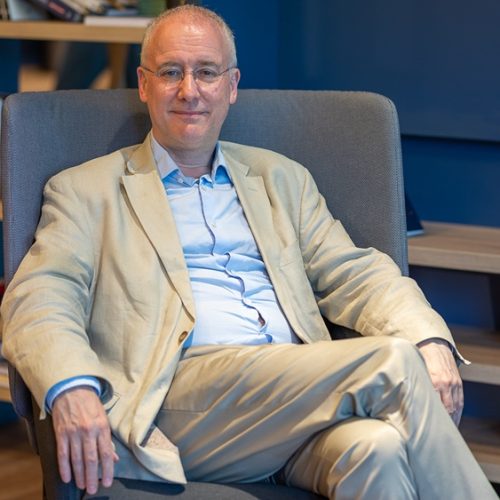
David Armitage
munich centre for global history
David Armitage was a short-term fellow in global history at global dis:connect. He is the Lloyd C. Blankfein Professor of History at Harvard University, where he teaches intellectual history and international history. David was born in Britain and educated at the University of Cambridge and Princeton University. Before moving to Harvard in 2004, he taught for 11 years at Columbia University. A prize-winning teacher and writer, he has lectured on six continents and has held research fellowships and visiting positions in Australia, Britain, China, France, Germany, South Korea and the United States.
While attached to global dis:connect, David worked on three major projects. The first is a new global history of treaty-making and treaty-breaking since the 17th century, on which he lectured at the University of Erlangen-Nürnberg during his visit. The second is a set of essays on opera and international law, which the offerings of the Bavarian State Opera and a visit to nearby Salzburg greatly enriched. The third was the international conference, Oceans Disconnect that he co-organised with Roland Wenzlhuemer and Sujit Sivasundaram (Cambridge/gd:c fellow alumnus), in tandem with the Cambridge University Press series on oceanic history that he co-edits with Sujit.
Click HERE for a list of publications.
Click HERE to email David.

David Armitage
munich centre for global history
Click HERE to email David.
Click HERE for a list of publications.
David Armitage was a short-term fellow in global history at the Centre. He is the Lloyd C. Blankfein Professor of History at Harvard University, where he teaches intellectual history and international history. David was born in Britain and educated at the University of Cambridge and Princeton University. Before moving to Harvard in 2004, he taught for 11 years at Columbia University. A prize-winning teacher and writer, he has lectured on six continents and has held research fellowships and visiting positions in Australia, Britain, China, France, Germany, South Korea and the United States.
While attached to global dis:connect, David worked on three major projects. The first is a new global history of treaty-making and treaty-breaking since the 17th century, on which he lectured at the University of Erlangen-Nürnberg during his visit. The second is a set of essays on opera and international law, which the offerings of the Bavarian State Opera and a visit to nearby Salzburg greatly enriched. The third was the international conference, Oceans Disconnect that he co-organised with Roland Wenzlhuemer and Sujit Sivasundaram (Cambridge/gd:c fellow alumnus), in tandem with the Cambridge University Press series on oceanic history that he co-edits with Sujit.
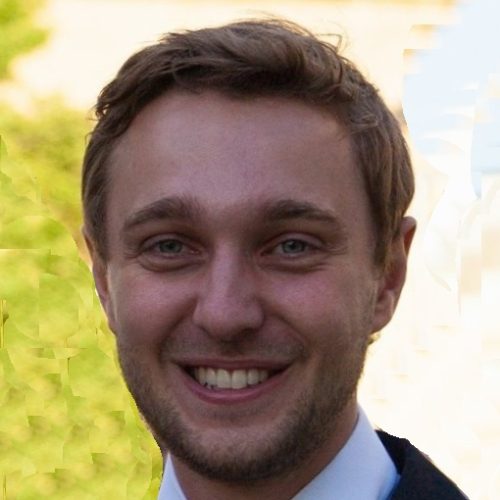
Sebestian Kroupa
munich centre for global history
Sebestian Kroupa was a short-term fellow in global history at global dis:connect. Sebestian is a historian of early modern natural sciences and medicine in global contexts. He is a Leverhulme Trust Postdoctoral Fellow at the University of Cambridge and a junior research fellow at Wolfson College, Cambridge. Sebestian’s research seeks to uncover the variety of agencies across cultures, genders and social status involved in the making of knowledge amid the early modern expansion of global interactions, which engendered the birth of medicine, science and the modern world. He has published on indigenous tattooing in the Philippines, long-distance networks of knowledge exchange, Renaissance geography and gorillas, and on science and islands in Indo-Pacific worlds.
At global dis:connect and the Munich Centre of Global History, Sebestian worked on his monograph, Plants on the Move: The Making of Cross-Cultural Knowledge in Southeast Asia, c.1650–1750, which contributes to recent efforts to decentre and decolonise European histories of science, medicine, and modernity.
Click HERE for a list of publications.
Click HERE to email Sebestian.

Sebestian Kroupa
munich centre for global history
Click HERE to email Sebestian.
Click HERE for a list of publications.
Sebestian Kroupa was a Global History short-term fellow at the Kolleg. Sebestian is a historian of early modern natural sciences and medicine in global contexts. He is a Leverhulme Trust Postdoctoral Fellow at the University of Cambridge and a Junior Research Fellow at Wolfson College, Cambridge. Prior to this appointment, he completed his PhD at the University of Cambridge and worked as Research Associate on the Wellcome-funded Renaissance Skin Project at King’s College London. Sebestian’s research seeks to uncover the variety of agencies across cultures, genders, and social status involved in the making of knowledge amidst the early modern expansion of global interactions, which engendered the birth of medicine, science, and the modern world. He has published on Indigenous tattooing in the Philippines, long-distance networks of knowledge exchange, and Renaissance geography and gorillas, as well as co-editing a special issue on science and islands in Indo-Pacific worlds.
At the Kolleg and the Munich Centre of Global History, Sebestian has worked on his monograph, Plants on the Move: The Making of Cross-Cultural Knowledge in Southeast Asia, c.1650–1750 which contributes to recent efforts to decentre and decolonise European histories of science, medicine, and modernity.
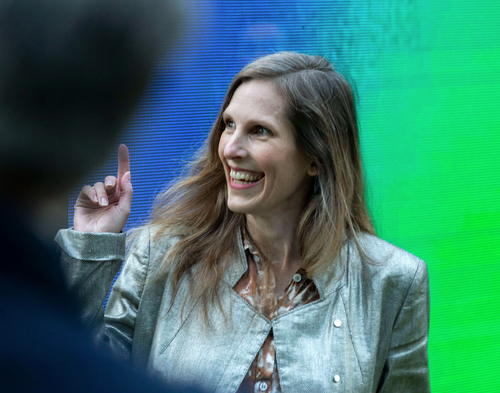
Fabienne Liptay
university of zurich
Fabienne Liptay is a professor of film studies at the University of Zurich. In her current research, she is particularly interested in moving-image practises that critically engage with the exclusions and inclusions in the institutional frames of global arts and media. Her research project Exhibiting Film: Challenges of Format, funded by the Swiss National Science Foundation, examines how formats have contributed to the establishment of global infrastructures of film exhibition, and it addresses what they have disabled and displaced.
At global dis:connect, Fabienne investigated artistic and non-artistic uses of formats that challenge notions of connectivity. The focus is on contexts, in which formats based on interoperability not only facilitate processes of global networking, but also produce disconnections that are politically and socially effective.
Click HERE for a list of publications.
Click HERE to email Fabienne.

Fabienne Liptay
university of zurich
Click HERE to email Fabienne.
Click HERE for a list of publications.
Fabienne Liptay is a professor of film studies at the University of Zurich. In her current research, she is particularly interested in moving-image practises that critically engage with the exclusions and inclusions in the institutional frames of global arts and media. Her research project Exhibiting Film: Challenges of Format, funded by the Swiss National Science Foundation, examines how formats have contributed to the establishment of global infrastructures of film exhibition, and it addresses what they have disabled and displaced.
At global dis:connect, Fabienne is investigating artistic and non-artistic uses of formats that challenge notions of connectivity. The focus is on contexts, in which formats based on interoperability not only facilitate processes of global networking, but also produce disconnections that are politically and socially effective.
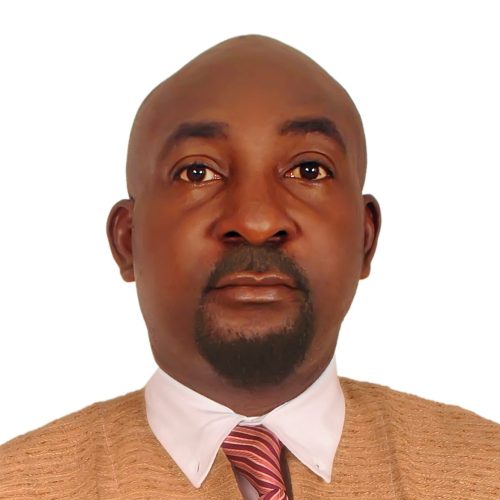
Olisa Godson Muojama
munich centre for global history
Olisa Muojama was a Global History short-term fellow at the Kolleg. While in Munich, he has worked on a project entitled German Subjects and Properties in Colonial West Africa during World War II, 1939-1945. This study aims to examine the wartime relations between Germany and the Allied powers in their colonial territories of West Africa during the Second World War (1939-1945). It specifically deals with the wartime status and treatment of Germans (traders, professionals, researchers and
missionaries) and their properties (firms, estates, factories, missions, patents and trade mark) in British West Africa during World War II, with a special emphasis on Nigeria, including Cameroon under the British mandate.
Click HERE for a list of publications.
Click HERE to email Olisa.

Olisa Godson Muojama
munich centre for global history
Click HERE to email Olisa.
Click HERE for a list of publications.
Olisa Muojama was a Global History short-term fellow at the Kolleg. While in Munich, he has worked on a project with the title “German Subjects and Properties in Colonial West Africa during World War II, 1939-1945”. This study aims to examine the wartime relations between Germany and the Allied powers in their colonial territories of West Africa during the Second World War (1939-1945). It specifically deals with the wartime status and treatment of Germans (traders, professionals, researchers, and
missionaries) and their properties (firms, estates, factories, missions, patents and trade mark) in British West Africa during World War II, with a special emphasis on Nigeria, including the Cameroons under the British mandate.
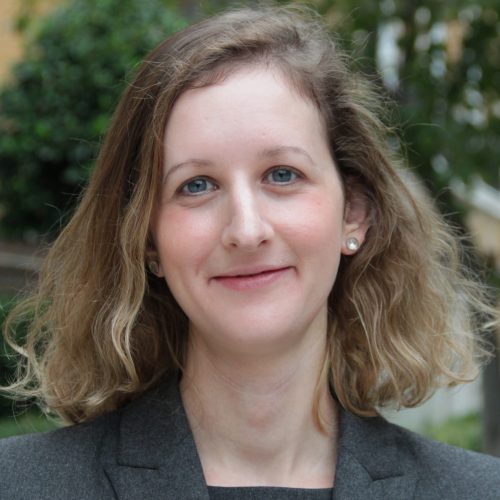
Heidi Tworek
munich centre for global history
Heidi Tworek was a short-term fellow in global history at global dis:connect. She is a is a Canada Research Chair (Tier II) and associate professor, jointly appointed at the School of Public Policy and Global Affairs and History at the University of British Columbia. Heidi received her BA (Hons) in modern and medieval languages with a double first from Cambridge University and earned her PhD in history from Harvard University. She is an award-winning researcher of media, communications, health, platform governance and international organisations.
At global dis:connect, Heidi worked on a project about the global history of health communications. By tracing how communications networks became crucial for combating pandemics in the 19th and 20th centuries, she explored the relationship between nations, empires and international organisations. Communication alone could not have stopped epidemics like Ebola in 2014, but better communication could have saved thousands of lives, including during the COVID-19 pandemic. The history of health communications provides another way to understand how and why communications came to play as vital a role in disease management as medical treatments themselves.
Click HERE for a list of publications.
Click HERE to email Heidi.

Heidi Tworek
munich centre for global history
Click HERE to email Heidi.
Click HERE for a list of publications.
Heidi Tworek was a Global History short-term fellow at the Kolleg. She is a is a Canada Research Chair (Tier II) and Associate Professor, jointly appointed at the School of Public Policy and Global Affairs and History at the University of British Columbia. Heidi received her BA (Hons) in Modern and Medieval Languages with a double first from Cambridge University and earned her PhD in History from Harvard University. She is an award-winning researcher of media, communications, health, platform governance, and international organizations.
In Munich, Heidi has been working on a project about the global history of health communications. By tracing how communications networks became crucial for combating pandemics in the nineteenth and twentieth centuries, she explores the relationship between nations, empires, and international organizations. Communication alone could not have stopped epidemics like Ebola in 2014. But better communication could have saved thousands of lives, including during the Covid-19 pandemic. The history of health communications provides another way to understand how and why communications came to play as vital a role in disease management as medical treatments themselves.






